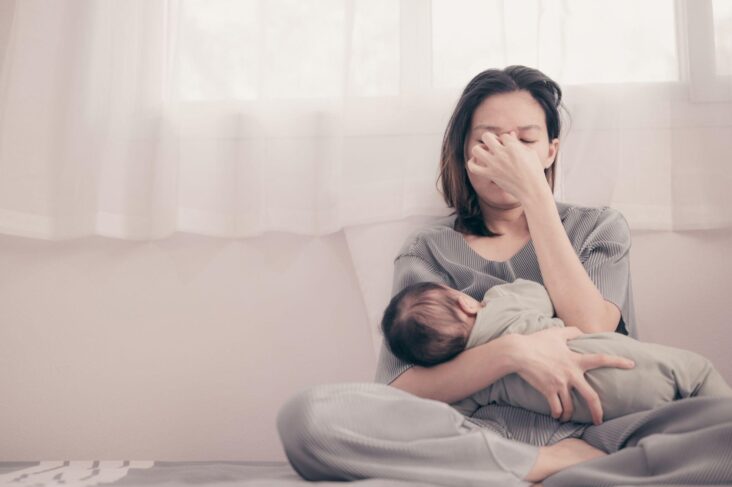The perinatal period and transition to motherhood is a vulnerable time for a mother’s mental health. Women are likely to experience postpartum depression and anxiety if they are socially isolated and perceive themselves as having low social support. It’s natural to feel a jumble of powerful emotions after giving birth, from excitement and joy to fear and anxiety but for some women, those feelings can be so intense that they lead to postpartum depression. PPD can be incredibly isolating and frightening. This condition affects one in seven women.
It is possible to overcome PPD. Some prompt treatment can help you manage your symptoms and reclaim your life.
In the blog post, we’ll discuss the truth about postpartum depression: what it is, how it feels, and how to get help. We’ll also dispel some of the myths about PPD that can make it difficult for women to seek help. If you think you might be suffering from PPD, please seek help.
Postpartum Depression
Postpartum depression is a medical condition that many women get after having a baby. Despite its seriousness, it is often misunderstood. Some people think that postpartum depression is just a case of the “baby blues”—that it’s just a passing feeling that goes away after a few weeks. But postpartum depression is much more than that.
Symptoms of Postpartum Depression
In order to avoid serious health consequences for yourself and your baby, it’s essential to identify the symptoms of postpartum depression early on.
Some of the most common symptoms include:
- Thoughts of harming yourself and your baby
- Severe mood swings
- Excessive crying
- Withdrawing from family and friends
- Having trouble bonding with your baby
- Experiencing intrusive thoughts or flashbacks about the birth experience
- Feeling like you’re not good enough as a mom
- Hopelessness
- Recurrent thoughts of death or suicide
Causes of Postpartum Depression
So what causes postpartum depression? It’s different for everyone, but some of the most common factors include sleep deprivation, hormone fluctuations, and feeling overwhelmed.
It is also important to note that postpartum depression can occur during pregnancy or months after delivery. So if you’re feeling down and like you can’t shake it, please talk to your doctor. You’re not alone.
How Is Postpartum Depression Treated?
Postpartum depression is a serious condition that can cause distress for both the mother and the baby. But the good news is that it is treatable. There are several ways to treat postpartum depression, and the treatment depends on severity. Some common treatments include:
- Counseling
- Antidepressants
- Hormone therapy
- Relaxation techniques
Whatever treatment plan you choose, it’s important to stick with it and get the support you need. Remember, you’re not alone. There are lots of people who can help you through this tough time.
Tips for Coping with Postpartum Depression
Several lifestyle changes may relieve your symptoms
Here are a few tips:
1. Keep yourself as a priority
In order to cope with PPD, it is imperative to love yourself. Make time for yourself, even if it’s just a few minutes each day. Relax with a book, take a walk, or take a bath.
2. Set realistic goals
The dishes and toys on the floor can wait. Do not expect yourself to be perfect. Set some realistic expectations, and stick with getting those things crossed off your to-do list.
3. Enjoy some ‘Me Time’
When you have a baby, it can be easy to forget you need time for yourself. Make a habit of getting dressed, leaving the house and running an errand, or visiting a friend on your own.
4. Connect with other moms
There’s nothing like talking to someone who’s been through it all to make you feel better. Talk therapy is another excellent option. It can allow you to sort out your thoughts and feelings. Find a support group or chat with other moms online.
5. Get plenty of rest
Sleep when you can find the time and take naps to fill the gaps, this is especially important in the early days after giving birth. Make sure that you’re taking breaks and getting as much sleep as possible.
6. Eat healthy foods
Pick up healthy food items that will help keep your energy up and your mood stable.
Conclusion
You’re not alone.
One in seven women will experience postpartum depression after giving birth. It can feel like you’re the only one going through it, but that’s not the case. An untreated postpartum mental health condition can negatively impact your ability to care for your new baby and yourself. If you think you might be experiencing postpartum depression, please talk to your doctor. There is always a help available, and you don’t have to suffer in silence.

